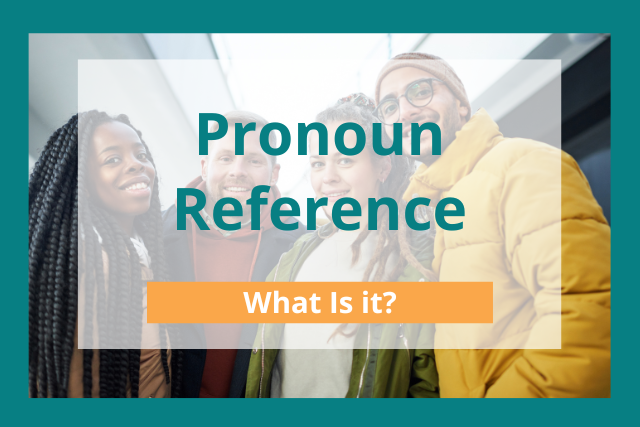
Pronouns are words that replace nouns or noun phrases. Sometimes it’s easier to say she and her instead of saying a person’s name over and over again. Pronouns have several different forms. It’s important to make sure all the pronouns match the noun that they refer to.
For instance, if you are talking about a woman named Nancy, you would only use the pronouns she, her, and hers. It doesn’t match to say Nancy went to its car. You would say Nancy went to her car.
It’s important that your pronouns match the noun you are referring to so that your writing is as clear as possible. There are eight types of pronouns. Each of these come in five different forms. Let’s take a look at all the different types of pronouns.
First-Person Pronouns
Singular
Subject: I
Object: me
Possessive adjective: my
Possessive pronoun: mine
Reflexive: myself
Plural
Subject: we
Object: us
Possessive adjective: our
Possessive pronoun: ours
Reflexive: ourselves
Second-Person Pronouns
Singular
Subject: you
Object: you
Possessive adjective: your
Possessive pronoun: yours
Reflexive: yourself
Plural
Subject: you
Object: you
Possessive adjective: your
Possessive pronoun: yours
Reflexive: yourselves
Third-Person Pronouns
Singular, male
Subject: he
Object: him
Possessive adjective: his
Possessive pronoun: his
Reflexive: himself
Singular, female
Subject: she
Object: her
Possessive adjective: her
Possessive pronoun: hers
Reflexive: herself
Singular, thing
Subject: it
Object: it
Possessive adjective: its
Possessive pronoun: n/a
Reflexive: itself
Plural
Note: The third-person plural can also be used to talk about one person whose gender is unknown or if the person chooses to use third-person pronouns.
Subject: they
Object: them
Possessive adjective: their
Possessive pronoun: theirs
Reflexive: themselves
Examples of Pronoun Usage
Subject pronouns
- I went to the store yesterday.
- They are my friends.
Object pronouns
- Bring me the paper.
- Give the cookies to her.
Possessive adjective pronouns
- What is your dog’s name?
- I parked next to his car.
Possessive pronouns
- The money is all ours.
- The cookies are his.
Reflexive pronouns
- We have the house to ourselves all day.
- I can’t believe you washed the car all by yourself.

